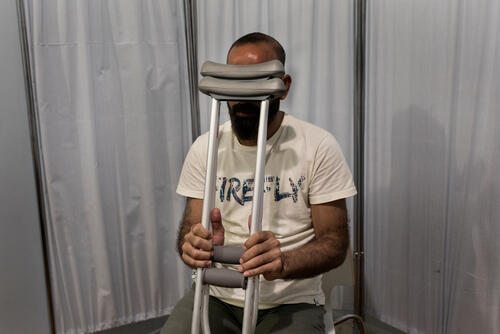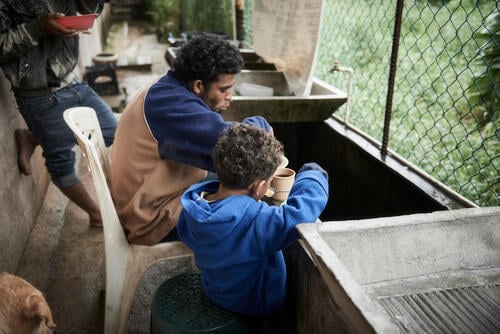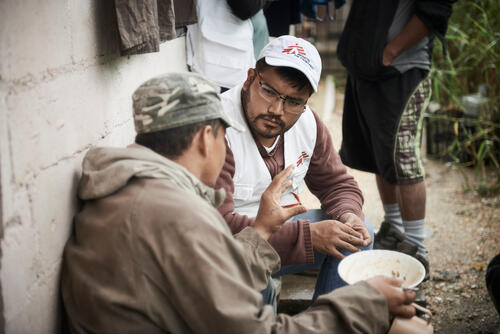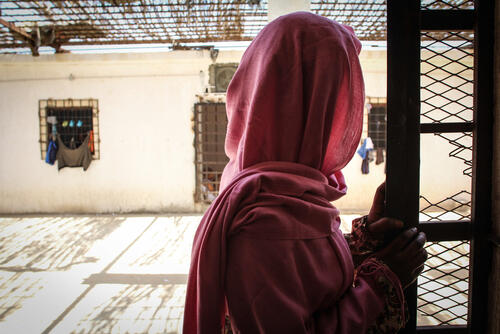Gianfranco De Maio began working at MSF’s rehabilitation centre for victims of torture in Rome in October 2015. He is now responsible for the medical activities in all of MSF's centres for survivors of torture around the world.
Gianfranco explains why torture and ill treatment are not just physical problems, and how MSF tries to master the complexity of the issue by offering patients comprehensive care.
Why does MSF run special centres for survivors of torture and ill treatment? Why are they not treated in general hospitals?
MSF teams have treated victims of torture in many different places around the world; across central Africa, Mexico and Europe, to name a few. Some people are mistreated in the countries they passed through or migrated to; others flee their country of origin because of persecution, torture and abuse.
Through years of treating patients we started to understand that torture is more than just a physical health issue. Torture should be regarded as a sociological and anthropological issue which has consequences on physical health; it creates visible and invisible wounds.
Our approach is really about helping people to rebuild social relationships with others. Torture and ill treatment attacks a person’s ability to form balanced and meaningful relationships with people. Their trust in others is damaged and they lose dignity because of this.
If you only treat the physical symptoms of torture you are not addressing the problem in its complexity. This is why MSF decided that we needed a different approach, a truly multidisciplinary one. The medical answer is not enough, the psychological answer is not enough. Social and legal issues also have to be addressed.
In our rehabilitation centres we can offer that, and I think we do it successfully.
Why does MSF see patients as ‘survivors’ of torture and not just ‘victims’?
If you talk about ‘victims’, people who have been tortured are then stigmatised as being weak. But they are not weak at all!
When we treat patients, we see that these people are actually really strong; they have gone through horrible experiences, but they find their way to us and are able to move on with their lives. This is why we call them ‘survivors’.
Can you explain what MSF's multidisciplinary approach is?
In the centres we work in teams of five. This includes a doctor, cultural mediator, social worker, physiotherapist and a psychologist. Each of them talks to the patient individually first, then all five meet and discuss the needs of the patient together to set up an appropriate treatment programme.
Multidisciplinary means that all aspects of the patient’s life are considered: after hearing the opinion of the social worker, the doctor might change their mind about how to treat the patient. Before the individual sessions start – physiotherapy, legal advice, medical treatment, etc – we also discuss with the patient what they want and what they think the treatment should consist of.
The aim is that a survivor of torture starts to regain autonomy. It´s impossible to say: “You need 15 sessions of psychotherapy, and then you will be healed.” It´s not a quantitative approach, it´s about the quality of the result.
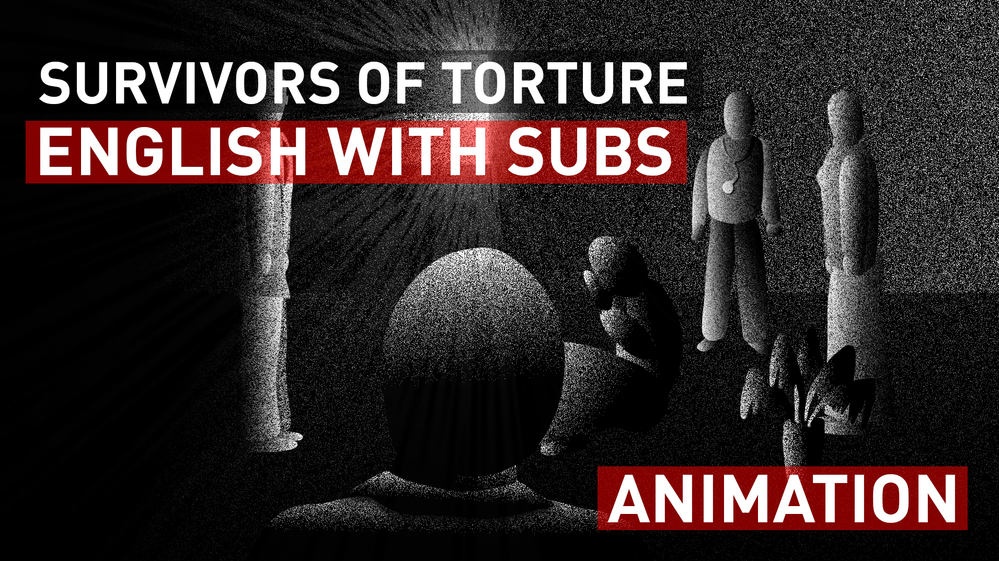
Survivors of Torture
How does MSF find its patients?
In Rome, for instance, we are in contact with public institutions who deal with arriving refugees and migrants, and they refer patients to MSF. In other locations, like Mexico, we work with private organisations and UNHCR. Now many patients have heard about our centres and come on their own initiative.
You explained what torture means beyond the physical effects. Have you heard survivors of torture themselves explain what they think and feel torture is?
It's striking at first, because patients give a very cold and distant description, as if they are talking about someone else and not themselves. This is a coping mechanism - you want to survive, so you distance yourself. It might be about sexual violence, but you handle it like it is something that does not concern you.
But that's only the first step. When the patient starts to open up sometimes they talk about what has happened to them in a very dramatic way. Sometimes it’s as if the patient is in a trance, as if the past is happening right now, and they’ll say things like, “here they are, they’re coming after me again, stop them!”
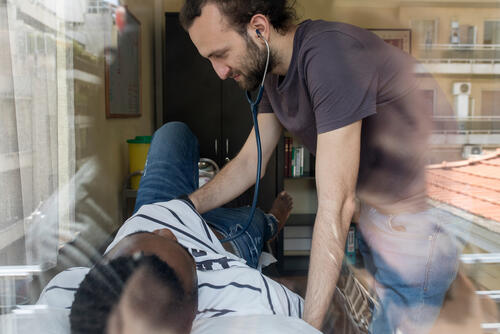
In such a fraught situation, how does the doctor or therapist react?
Sometimes the therapist has to also play along and act as if the torturer were there, saying things like: “Do stop now!” And to the patient, the torturer really seems to be there.
In some sessions we have three seats – one for the patient, one for the therapist and an empty chair for the absent torturer, to try and understand their motivations.
One of the ways to alleviate the suffering of a survivor is to try and understand the torturer's reasons, his logic: why did they undress and debase me? Why did they whip the bare soles of my feet? Why did they attach electrodes to my fingers, my genitals... What are my memories?
It's about rationalising what happened. The aim is for the survivor to realise the torture and abuse was not their fault. A lot of survivors believe it is their fault, that they’ve done something to deserve it. Because that's the torturer's message: you are a traitor, you support this political party, so it's your fault that you are mistreated.
To get out of that mindset, you have to confront the absent torturer.
How does MSF define rehabilitation?
At first, rehabilitation is about building a positive relationship with a professional who will answer a patient´s needs, whether it’s medical, legal, social or mental.
There was one patient who suffered from a constant bad smell in the reception centre where he was living. That might seem ridiculous, but it was the same smell as the place in Libya where he was tortured. Again and again the smell reminded him of violence and cruelty. This was something we could fix and we asked the relevant people to get rid of the smell.
People are under enormous mental pressure. We give them the opportunity to decompress and let off steam, bit by bit.
Even fixing something small – like the smell in the reception centre - helps a patient to regain trust in others, to abandon suicidal thoughts, nightmares, aggression and desperation. They start to believe in their own capabilities again and regain confidence. And that is what rehabilitation is.
Sometimes, before we discharge a patient, we feel like we should do something to mark the occasion. I remember when the team got together and got a present for one of our patients who, like so many others, experienced a long and difficult journey as a refugee. We gave him a colourful suitcase, marking his transition into a new phase of his life.
A life in which he is autonomous again and able to have new, positive social relationships. The patient understood the meaning of the gesture perfectly and was extremely moved. He cried for two hours, understanding that we had recognised his suffering and that this made it possible for him to move on.



